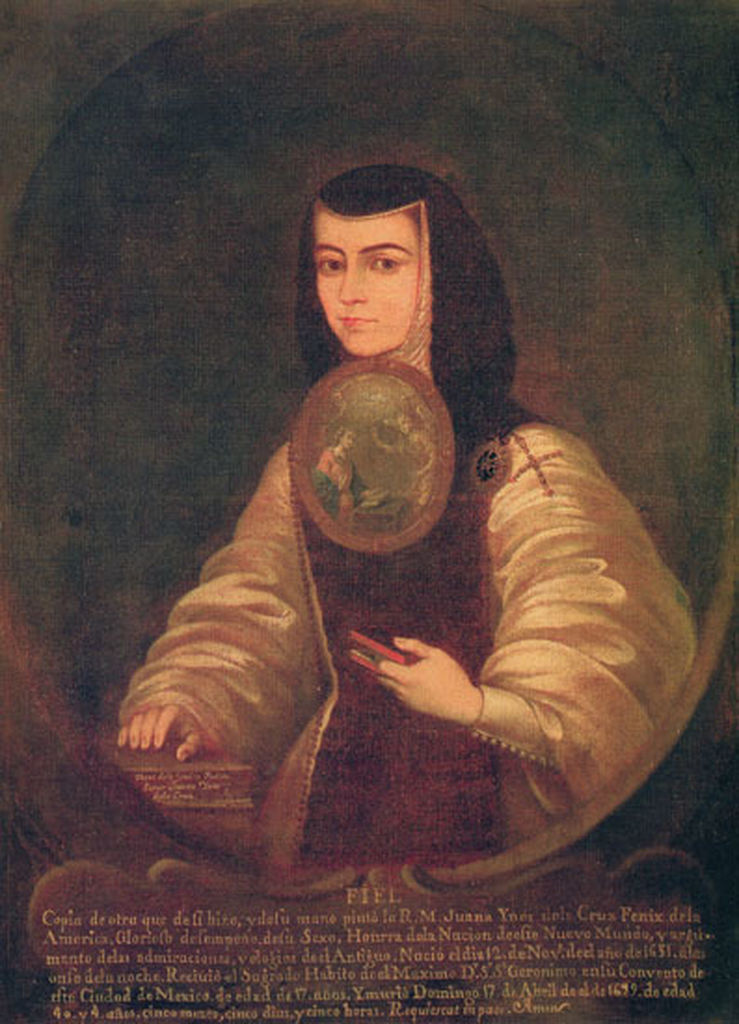Juana Inés de la Cruz, << WAH nuh ee NAYS day lah KROOS >> (1651-1695), was the greatest poet of the Baroque movement in colonial Latin American literature. She was born on Nov. 12, 1651, near Mexico City with the given and family name of Juana Inés de Asbaje y Ramirez. She became a nun in 1667 and took her religious name. She is often called Sor (Sister) Juana. She entered a convent in Mexico City in 1669 and lived there the rest of her life.

Sor Juana was one of the greatest intellectuals of her time and as a child amazed adults with her love of learning. She was regularly commissioned to write poetry commemorating important events in society. Using her vast knowledge of the arts and sciences, she wrote lyrical poetry and religious dramas among other writings. She is best known for poetry that explores human emotion from an intellectual perspective. One of her finest prose works was Response to Sor Filotea de la Cruz (1691), a brilliant defense of learning as a proper activity of women. The work is considered a landmark of feminist literature. Sor Juana died on April 17, 1695.
